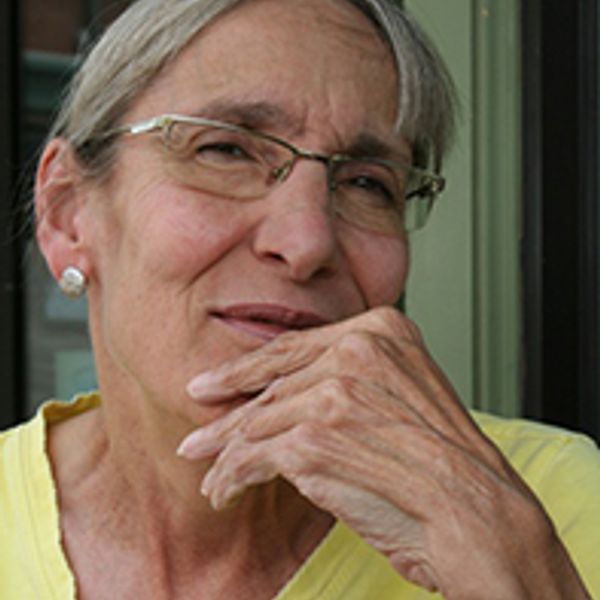Lia Purpura, Parasol Mushroom (detail), featured in AGNI 102
Masterpiece
What went wrong here was morning heat and a cracked sidewalk.
Cottonwood fluff piled the gutter and steamed in the light, but we talked
about love anyway, missing it now we looked everywhere and shrank
from signs when we could read them. The famous one on 33, the crank
hand-painted a revision over the old words about Bill Clinton, and joy
lined up the stenciled letters on fresh white paint, an old man and a boy
who would grow up close to a grandfather most drivers laughed about
even if they agreed. But the heat. And the sidewalk. A situation
unfolding in the harsh unspeaking sky that you thought accounted
for the state slogan and other regional half-truths typically mounted
in opinion columns you read on weekends after you finished mowing.
I let you keep that job to maintain a looser lassitude indoors, allowing
the afternoon in the east window when the sun plowed clouds west,
and deciding there between singing and sighing, forestalled fears at best
the day after the decision on the bakery in Colorado, the gay cake
that wasn’t because it was art, and who would think of us or make
concessions for our sake, stuck here with paychecks that worked like bait.
What went wrong here was a birth certificate—yours—and a long wait
for a real job—mine—that shook us down with the common things
that stumble, or crawl, or rot back to dust-flaked clay. We needed wings
and fed birds outside the kitchen for the vicarious flight,
the tenor of complaints we couldn’t translate despite
the stance of the intrepid goldfinch or the jay’s manifest hatchet.
They would not be leaving, not for good and all, and we’d catch it
if one particular favorite, like the cardinal we called Boyfriend
for his habit on the sill, casual, head cocked like a cork to attend
our business through glass, disappeared. Nothing he feared.
We longed for soaring. If we could we’d outfly him through sheer
will, that knack beyond instinct humans burn like coal to fire
our bad ideas and sometimes better, whole lifetimes that bear
art that can’t be eaten or otherwise used to harm or isolate.
If a baker baked the art of cake; if he presented it on a plate;
if it stood for all he stood for, his law, his staff, his version
of the sacred books, he could market his private obsession
as anything he dreamed to call it, but you say only if he opened
the doors in his strip mall store to the whole as well as the broken,
and knew himself the shattered pieces restored by the act
of just not caring whose knife slid through the crumbling fact
of flour and butter and fondant roses. Imagine him staying
to observe the ceremony. He’d take his place without delaying
anyone from ring or vow, and he might bow as if his prayers
were homely wrens, due nothing for his smugness, taking to air;
and we could live without the need to worry every error
as maybe meaning what he thought religion means, terror
of his supremacy. We can’t be birds in this heat. We only walk
on crumbling concrete. Our shoe soles stick. It’s not our fault
we’re here where the simplest shape of human touch doubled—
what we call the art of love—is baked into the art of trouble.

Lisa Lewis
Lisa Lewis’s books include The Unbeliever (Brittingham Prize), Silent Treatment (National Poetry Series), Vivisect (New Issues Press), Burned House with Swimming Pool (American Poetry Journal Prize, Dream Horse Press), The Body Double (Georgetown Review Press), and Taxonomy of the Missing (The Word Works). A chapbook titled Story Box was also published as winner of the Poetry West Chapbook Contest. Her work has appeared in Kenyon Review, New England Review, AGNI, Third Coast, American Literary Review, Fence, The Best American Poetry, and elsewhere. She has also won awards from The American Poetry Review and The Missouri Review, a Pushcart Prize, and an NEA Fellowship. She teaches in the creative writing program at Oklahoma State University and serves as editor-in-chief of Cimarron Review. (updated 04/2024)
Read Lewis’s essay, “Writing for Our Own Lives,” in AGNI’s The Writing Lives of Roe v. Wade.
